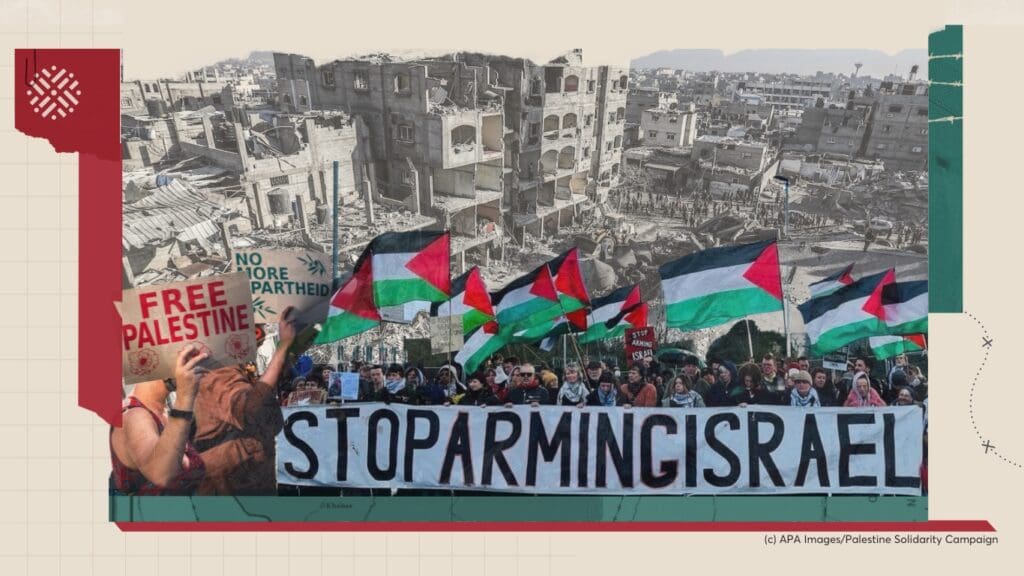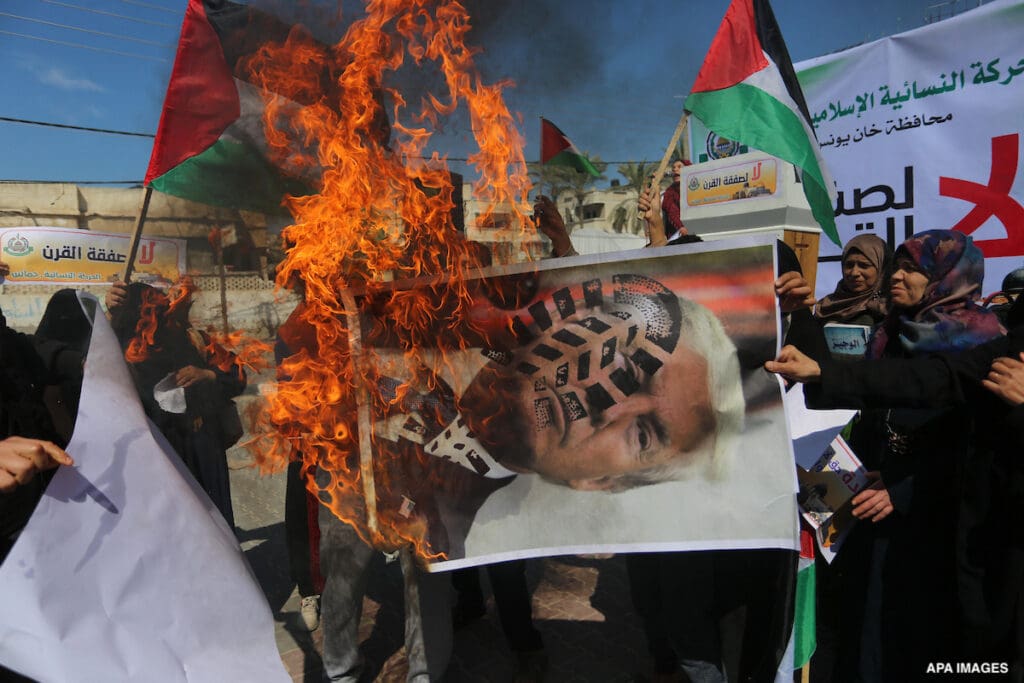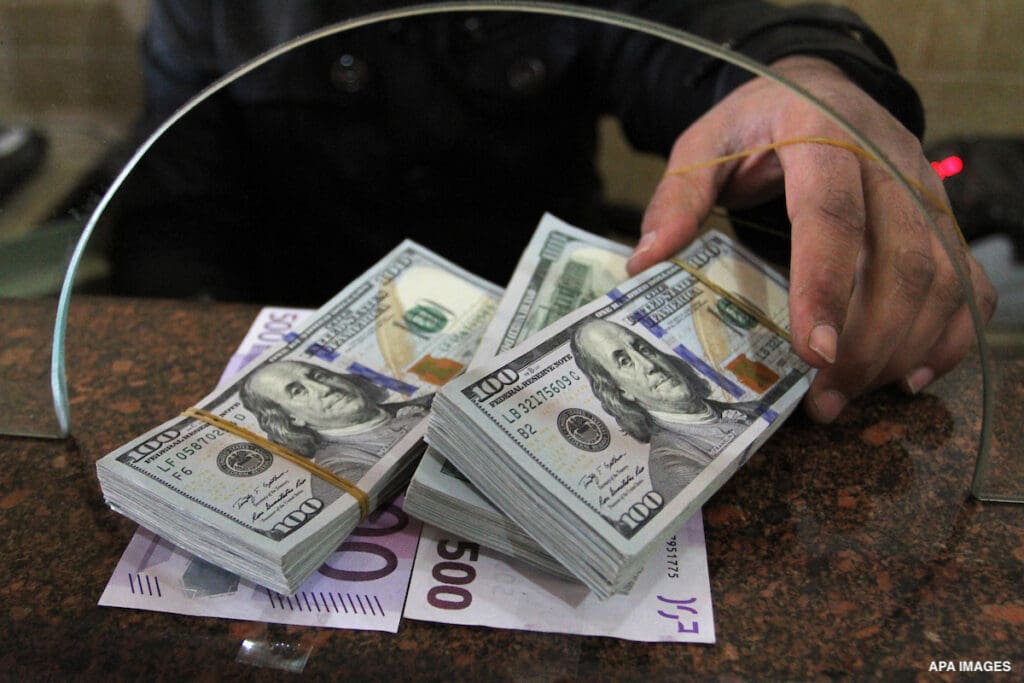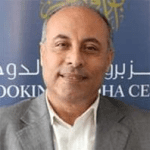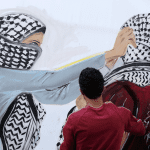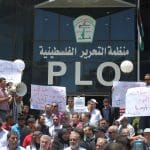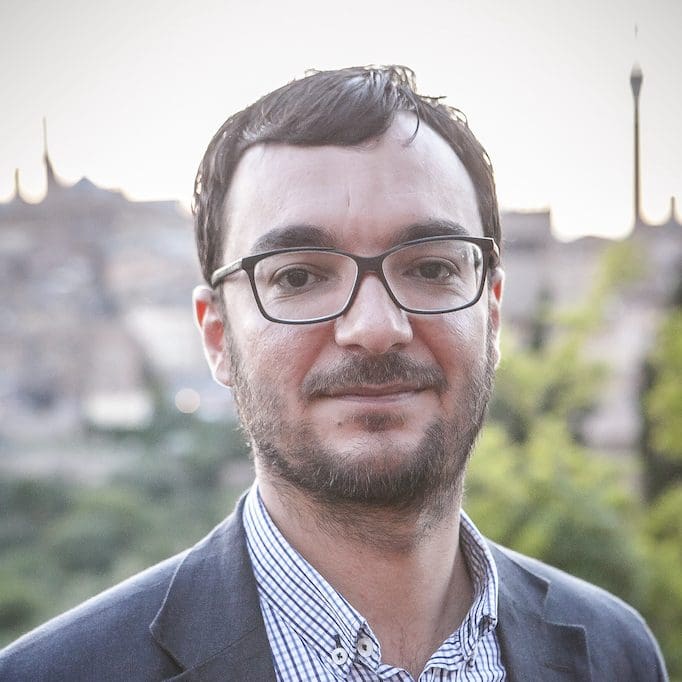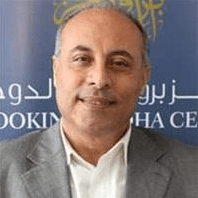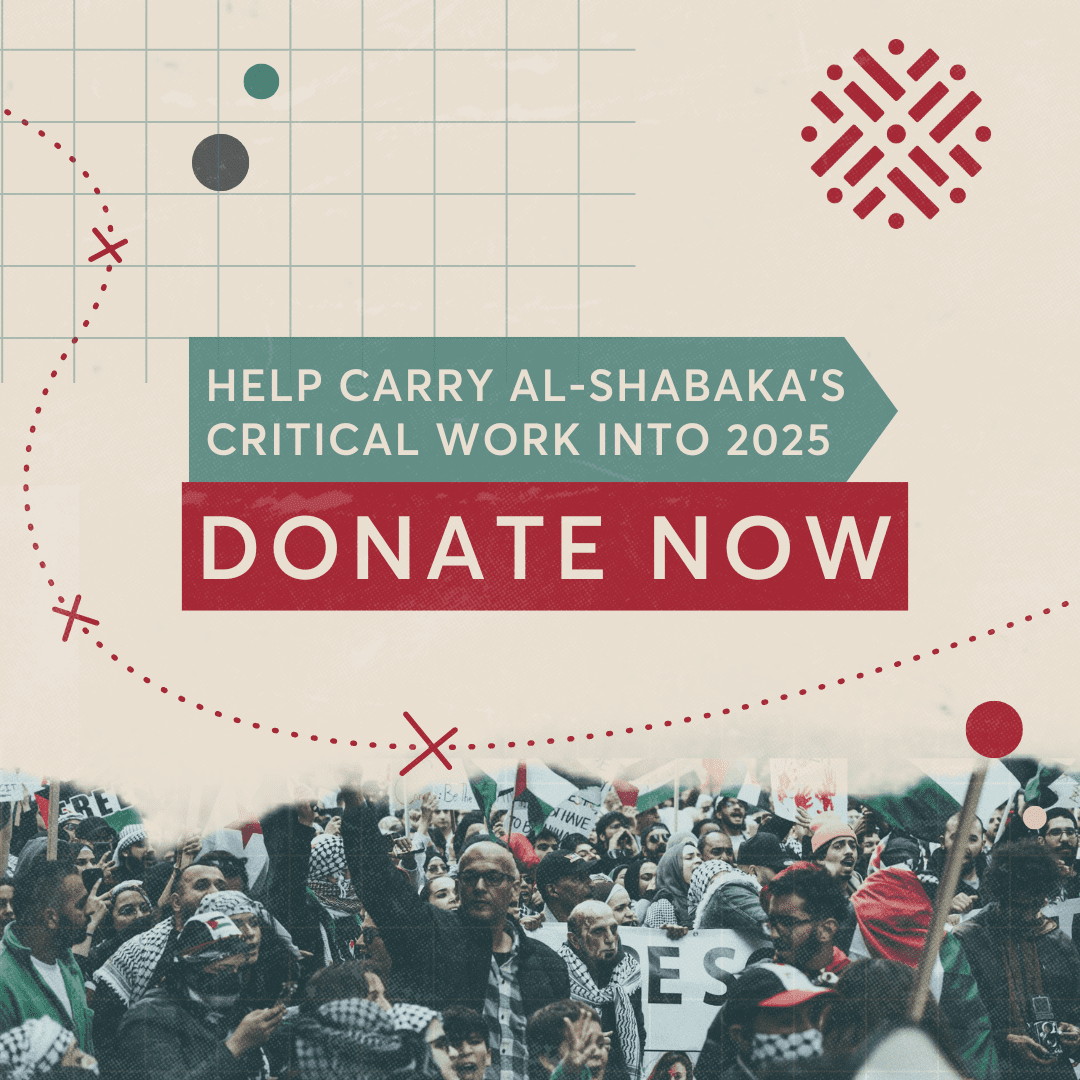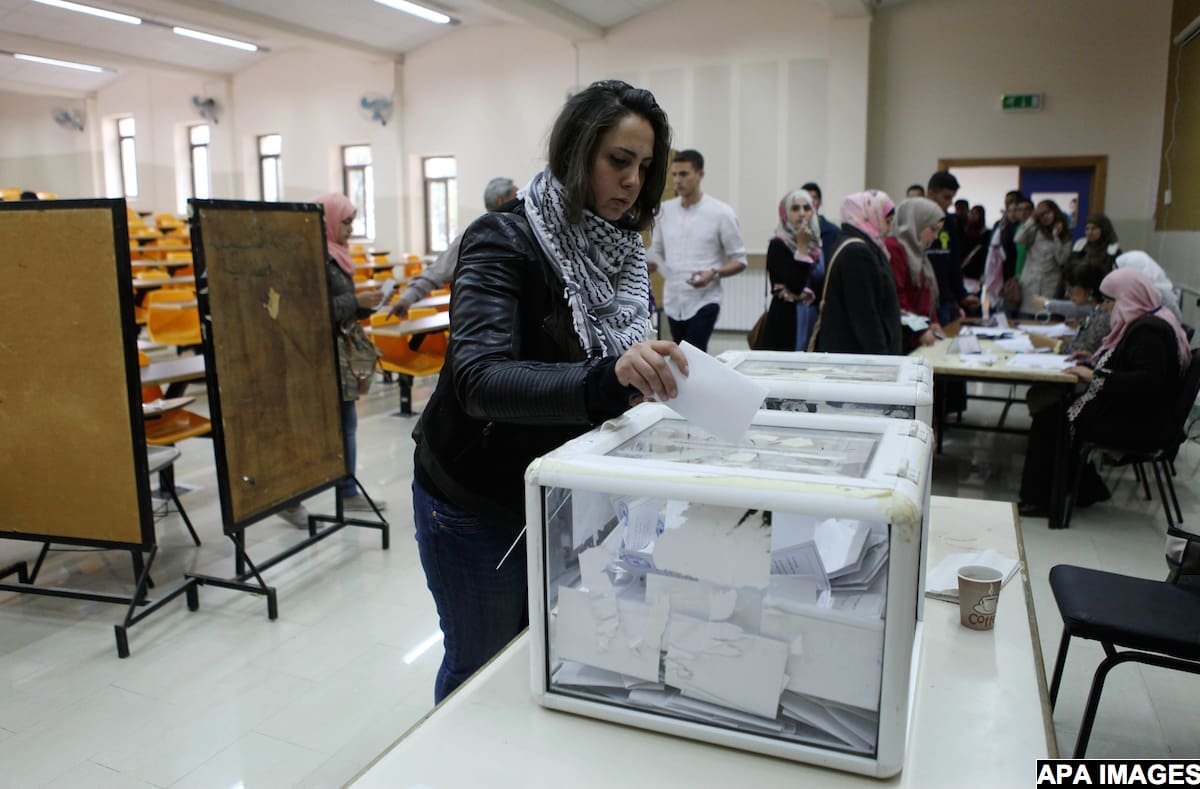
Overview
The potential of Palestinian democracy has been greatly weakened by Israel and its military occupation, Palestinian actors such as Fatah and Hamas, and key members of the donor community. Such a situation sustains the dysfunctional nature of the Palestinian political system and the unelected, unrepresentative status of the political actors who dominate the lives of the Palestinian people. The recent, heavily politicized failure of the attempt to conduct elections for local councils in the occupied West Bank and Gaza and the just concluded Fatah conference, which largely reaffirmed a moribund status quo, are cases in point.
In this roundtable, Al-Shabaka analysts examine the notion of democracy under occupation so as to understand what it entails and how it can be expressed. All agree that democracy is severely curtailed under the present circumstances. Mouin Rabbani argues that Palestinian elections since Oslo have contributed to the fragmentation of the Palestinian people and the Palestinian political system, shoring up a status quo in which Israel retains indefinite control. Basem Ezbidi, through the lens of the 1996, 2005, and 2006 elections, explores this detrimental fragmentation. Tariq Dana writes of the problem of divisions within the Palestinian National Movement, while Amal Ahmad highlights constraints on democracy caused by the economic conditions of occupation. Al-Shabaka Program Director Alaa Tartir facilitated the roundtable.
Mouin Rabbani
The question is not whether democracy is possible under occupation, but rather whether it is meaningful. The history of colonialism is riddled with examples of local, regional, and national elections, but these have tended to legitimize and consolidate foreign rule rather than challenge it. Hence the key issue concerns the context in which such elections are held, their objectives, and how they influence the relationship between colonizer and colonized.
In the case of Palestine, there are instances both of elections that have challenged the occupation and those that have consolidated the status quo. In the category of the former are the 1976 West Bank municipal elections, which though initially called by Israel to strengthen pro-Hashemite forces and weaken an ascendant PLO (on the assumption that the various PLO factions would once again boycott the exercise), were adroitly exploited by the PLO to confirm its position as the sole legitimate representative of the Palestinian people, including, in this case, those in the West Bank. The election results also made possible the formation of new institutions to organize and mobilize Palestinians in the occupied territories as they confronted the challenge of the Egyptian-Israeli Camp David Accords and the autonomy scheme that was central to it.
By contrast, elections held since the Oslo Accords have tended to contribute to the fragmentation of the Palestinian people and the Palestinian political system, and perhaps more importantly, to consolidate a status quo in which Israel retains indefinite control over the occupied territories.
It bears remembering that electoral democracy is almost never central to or even part of a national liberation struggle – compare, for example, Algeria, Angola, or Vietnam. The Palestinian struggle has in this context been remarkably pluralistic, with such factions as Fatah, the PFLP, the Palestine Communist Party, and more recently Islamic Jihad and Hamas largely coexisting and often cooperating. Indeed, Palestinian history, particularly between 1968 and 1993, clearly demonstrates an institutional ability to represent the Palestinian people from Pennsylvania to Palestine to Papua New Guinea through an indisputably national movement. The key principles in this respect are consensus and power sharing, instead of elections conducted by and for only a portion of the Palestinian people, yet claiming national significance.
The person of Yasser Arafat is instructive in this case. His legitimacy was never higher than when he led the Palestinian people on the basis of consensus around both his leadership and a national program. Ironically, his legitimacy and leadership were never questioned to the extent they would be after he was elected to the presidency of the Palestinian Authority in a free and fair election.
Holding political leaders accountable through elections in the context of a national liberation struggle, unless one is talking about, for example, elections to a village council or internal party elections, is a dubious undertaking. The best safeguards in this respect are institutions that are representative and inclusive and that function properly, rather than those that decide matters through the secular religion of the ballot box. In advanced democracies, a primary purpose of elections is to select winners and losers. Those who succeed in elections don’t invite the losers to participate in governance or much of anything unless they fail to achieve a majority, and most would agree that this is the way things should be. Is that really an appropriate model for Palestinians to confront their multiple existential challenges?
The real challenge today is thus not holding yet another election but rather rebuilding the national movement as a genuinely representative and inclusive one that once again represents Palestinians wherever they may be and does so on the basis of a strategy and political program that is identifiably one of national liberation.
Basem Ezbidi
Democratic elections generally serve as an opportunity for political parties to compete against each other to serve the public. Though such elections are competitive, they are not characterized by exclusion, as the parties acknowledge the legitimacy of each other as well as the rules of the political game. Thus while parties may disagree on strategies for reaching national goals, and often on the goals themselves, they do not disagree on the system and its procedures for the allotment of power.
This rule does not apply to the Palestinian elections for several reasons. First, the breadth and complexity of the Palestinian question make it difficult to control and manage elections. Second, there is the transitional nature of the current Palestinian state, including the ambiguous rules and provisions governing public affairs due to Israel’s occupation policies, the legacy of the Palestinian struggle, and the requirements of the current Palestinian Authority (PA). Third, the lack of sovereignty impedes the Palestinians’ right to reject what they do not want, which is what elections are intended to achieve. Fourth, the vague lines between the PLO and PA, governance and opposition, and the ruling party and its respective governments (Fatah in the West Bank and Hamas in Gaza) make it difficult to identify what those parties represent and hence their legitimacy. Fifth, there is the authoritarianism that has colored the Palestinian political leadership since Arafat.
These combined factors have turned the elections into an ineffective method of managing Palestinian public affairs. This was evident in the legislative elections of 1996 and 2006, as well as the presidential elections of 2005, which resulted in more division and fragmentation because they did not emanate from general national interest, despite official claims to the contrary.
The 1996 elections were a formula for facilitating Fatah’s project, the Oslo Accords. They created a Palestinian “partner” that suited the agreement, and empowered Fatah through internal and external legitimacy to end the conflict with Israel. This development led to a deep rift, dividing Palestinians into good guys running the “peace process” (Fatah and its PA) and bad guys hindering the process (Hamas and others). The consequent damage to the national cause, which both sides profess to serve, has been grave.
The 2006 elections also served to deepen disagreement and resentment between Fatah and Hamas, and led to an international and national siege of the occupied territories, to which Hamas responded by creating the Executive Force and forcibly seizing control of the Gaza Strip, which it has held since the summer of 2007.
The earlier 2005 presidential elections were really intended to enable Fatah to maintain the Oslo regime despite its failure, rather than creating an alternative to serve the common good of the Palestinians. Accordingly, the elections established a practically absolute presidency that runs the “country” through decrees and biased government policies that do not serve national interests. The presidency has become a powerful, closed institution with ample physical and symbolic resources. Its power surpasses that of all other institutions, even though the legitimacy of its leader expired years ago.
An entourage of interest groups now decide the course of the presidency. These groups have built a wall between it and the people, who are exhausted by occupation, division, taxes, and hegemonic security services. The tendency of the presidency toward individualism, authoritarianism, and clientelism is reinforced by the ineffectiveness of the legislature, the political split between the West Bank and the Gaza Strip, the repression of public opinion, and the distraction of the people with futile negotiations, loans, and promises of a Singapore-like state that has not and will not achieve liberation for the people.
Tariq Dana
After the emergence of the Palestine Liberation Organization (PLO), exclusionary politics characterized the Palestinian National Movement and its institutions. While some democratic features existed in certain sub-political arenas, such as student movements and pre-Oslo grassroots organizations, they failed to become an integral feature of the Palestinian institutional makeup. The Islamist alternative presented by Hamas is not only undemocratic, but also suspicious about the meaning of democracy. Thus, what we are witnessing today – increasing authoritarianism, excessive repression, and an almost complete absence of representation – is an inevitable consequence of the national movement’s historical path.
The Oslo process injected multilayered divisive effects and contradictions within the Palestinian body politic and society at large. Democracy is undoubtedly the best approach to resolve political and social contradictions in peaceful ways. Nevertheless, Palestinian leaders have always lacked the vision and political will to serve the Palestinian cause and public interests as a whole. They have instead abandoned their political and social constituents, embracing a self-serving agenda that shores up their authority and privileges. The result: A dysfunctional political system that lacks popular representation and is exposed to heavy external pressures, to the extent that Israel, the US, regional powers, and international donors have become the main facilitators of the PA political elite’s survival and the deciders of the fate of Palestinian institutions.
The conventional wisdom that elections are synonymous with democracy is misleading. Elections are a technical exercise to facilitate the rotation of power and representation. For the electoral process to be meaningful and productive, it must take place in a healthy environment where basic democratic criteria are integrated into the structure of national institutions, the political party system, civil society, the education system, and the general cultural framework. In addition, competing political forces and agendas should be subordinated to widely agreed-upon and respected rules, without which elections would end in catastrophe.
The Palestinian body politic and society at large have paid a heavy price because of the absence of these elements. The consequences of the 2006 legislative elections, in which Hamas swept to victory but was then not allowed to govern, were – and are – a major source for fueling the bipolar political, institutional, economic, and social divisions between the West Bank and Gaza. Ten years of intra-Palestinian division have further paved the way for Israel to manipulate Palestinian politics to satisfy its own interests, and have contributed to the fragmentation of Palestinian society. Today, due to the absence of a meaningful and united national movement, visionless factional loyalties and traditional subnational allegiances, such as tribalism, have surfaced to threaten what is left of Palestinian political and social fabrics.
It is very unlikely that meaningful elections would take place in such context. The only hope lies in the ability and willingness of the Palestinians to rebuild their national liberation movement to serve national and collective interests. In order for these interests to be protected and immune from Israeli manipulations and external interference, the principles of democracy, representation, and mutual respect must be incorporated into the project. Only then can we speak of elections.
Amal Ahmad
In Palestine, those who control the political process and to whom the welfare of the majority is tied determine the winners of democratic elections. It is therefore naive to imagine that parties other than Fatah and Hamas would emerge victorious. Such a democracy is not particularly meaningful if it simply legitimizes and intensifies contestation between two groups that are both unproductive and lack a long-term strategy to resist Israeli apartheid.
More importantly, democracy is not even possible under occupation, because democracy only functions when electoral results are legally and institutionally upheld. Because Israel has the ultimate power of enforcement in Palestine, democracy is not allowed to materialize unless the democratic aspirations of the Palestinian people match or serve the strategic interests of Israel. The election of Hamas in Gaza in 2006 is a perfect example.
Even if democratic elections were possible and meaningful in the Palestinian context, they could not successfully hold political leaders and parties accountable. It is easy to assume that corruption is a result of the absence of democracy, as voters can translate preferences for accountability and transparency into policy through elections, but this ignores the economic conditions that curtail such policy. All political systems, both democratic and undemocratic, manage conflict over resources and distribute benefits to powerful groups that are key to political stability; the question is whether such distribution occurs transparently or through patron-client relationships. In Palestine, corruption and patron-client networks are intrinsic to an economy that is severely underdeveloped. Due to this underdevelopment compounded by occupation, Palestine lacks fiscal space through which the government can mete out benefits in a transparent way. Without a large and sovereign budget through which benefits can be openly distributed, it is highly likely that patron-client networks will remain the main mode of distribution and thus that corruption will persist.
Because election results in Palestine are not particularly meaningful or institutionally upheld, and because the electoral process cannot change economic conditions, elections in Palestine are unlikely to enshrine a representative system. Rather, the best way to ensure such representation is to pursue a strategy around which a majority of Palestinians can rally and that does not need the validation of a formal democratic system. Strategies such as popular resistance and the global BDS movement exemplify this approach, whose cornerstone is the civil and human rights of Palestinians in the occupied territories, in Israel, and in the diaspora. These initiatives capitalize on strengths and hit Israeli apartheid where it hurts. The same cannot be said of elections, which, when their results go up in flames, simply highlight the weakness of the electoral approach in a context of occupation and underdevelopment.

